The Biggest Bombshells from the Donald Trump Indictment, from Hush Money Payments to 'Friends in High Places'
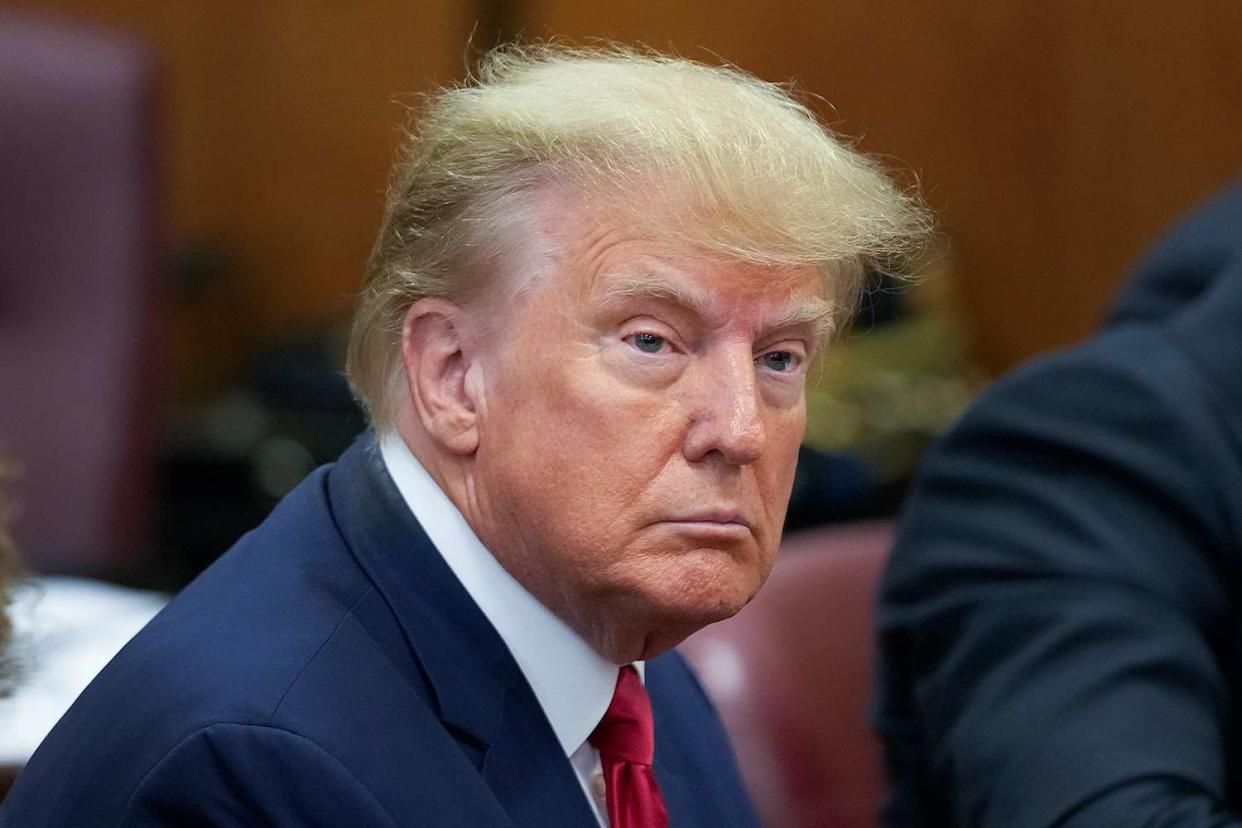
According to the unsealed indictment, Trump and his attorney ironed out some details of a hush money scheme in the Oval Office

Donald Trump became the first former president in U.S. history to answer to criminal charges Tuesday, appearing in a Manhattan courtroom to plead not guilty to 34 felony counts of falsifying business records in the first degree following an investigation into an alleged hush money payment he made to adult film star Stormy Daniels while he was a presidential candidate in 2016.
With Trump's arraignment came the unsealing of his indictment, which lays out the investigation into the hush money payments, and offers details on the prosecution's case against the former president. It also clarifies that while there are 34 counts, they are all under the same charge, meaning he is accused of falsifying business records in 34 separate instances.
Here are the biggest takeaways.
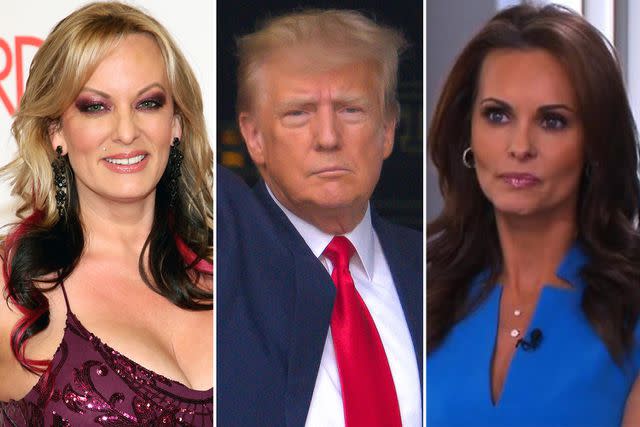
Prosecutors Allege Trump 'Hid Damaging Information from the Voting Public' — Including Two Extramarital Affairs — Ahead of His 2016 Election
According to prosecutors, Trump orchestrated a hush money scheme that lasted from August 2015 — just two months after he formally announced his run for the presidency — to December 2017, after he took office.
The scheme, they allege, saw Trump ask his attorney to pay off those who were trying to sell negative stories about him, such as women with whom he had had affairs.
In paying off the women, prosecutors argue, Trump "violated election laws and made and caused false entries in the business records of various entities in New York."
As the indictment describes, Trump requested that "Lawyer A" (widely assumed to be Trump's former attorney Michael Cohen) covertly pay "$130,000 to an adult film actress shortly before the election to prevent her from publicizing a sexual encounter with [Trump.]"
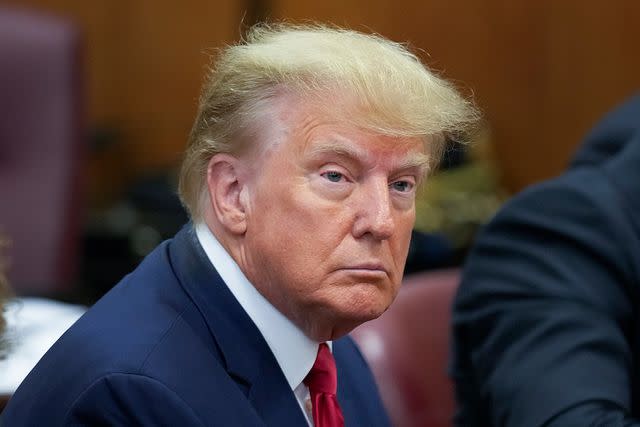
Cohen has already admitted to making that payment and, as the indictment notes, spent time in prison for it. But the indictment says the scheme goes further than that, with Trump allegedly paying his lawyer back under the guise of a legal retainer (according to the indictment, there was no retainer, and Trump was instead falsifying business records "to disguise his and others' criminal conduct.")
The indictment details another, similar, arrangement, in which Trump allegedly worked with higher-ups at the National Enquirer to silence another woman (who is rumored to be former Playmate Karen McDougal).
In that case, the editor-in-chief of the National Enquirer and the chief content officer at its parent company allegedly contacted Trump's attorney to say they had been contacted by a woman "who alleged she had a sexual relationship with the Defendant while he was married."
Trump, his attorney, and the tabloid then came to an agreement, the indictment claims, to pay the woman for her silence. The tabloid's parent company ultimately paid her $150,000 and gave her two magazine features—while Trump allegedly promised to reimburse the tabloid. (Conversations about that scheme, the indictment details, were captured on audio recordings, in which Trump can allegedly be heard saying, "So what do we got to pay for this? One fifty?" before suggesting she be paid by cash.)
Related:Donald Trump Pleads Not Guilty to 34 Felony Counts as Details of Indictment Are Unsealed
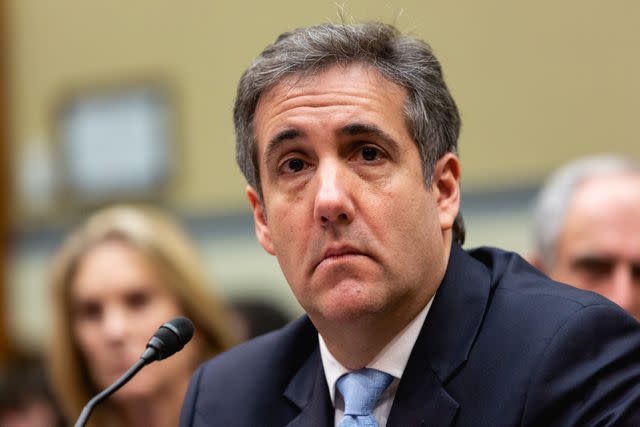
Trump and Michael Cohen Allegedly Hammered Out Some Details of the Hush Money Scheme in the White House
According to the indictment, after Cohen paid off the women, Trump paid Cohen back over time, with the lawyer submitting invoices for "services rendered" or labeled "retainer agreement" despite there being no retainer agreement in place.
The indictment also alleges that Trump and his attorney ironed out the details of the scheme in the Oval Office.
"In early February 2017, the Defendant and Lawyer A met in the Oval Office at the White House and confirmed this repayment arrangement," the indictment states.
Trump and The National Enquirer Allegedly Had a Deal
According to the indictment, Trump met with David Pecker, chairman of the National Enquirer publisher, and his own attorney at Trump Tower in August 2015. At the meeting, Pecker agreed to serve as the "eyes and ears" for the Trump campaign by alerting Trump to any negative stories about him, and by publishing "negative stories about the Defendant's competitors for the election." (The tabloid would go on to be criticized for its false reporting about Trump's competitor, Hillary Clinton, around that same time).
Even after his inauguration, though, Trump allegedly kept a close relationship with Pecker, meeting with him privately to thank him for his handling of the two women who were paid off — as well as his handling of another payoff, made to a doorman who claimed to have information about a Trump lovechild. (According to the indictment, the publisher ultimately determined the lovechild allegation not to be true.)
Trump also allegedly invited Pecker to the Inauguration, and to the White House, "for a dinner to thank him for his help during the campaign."
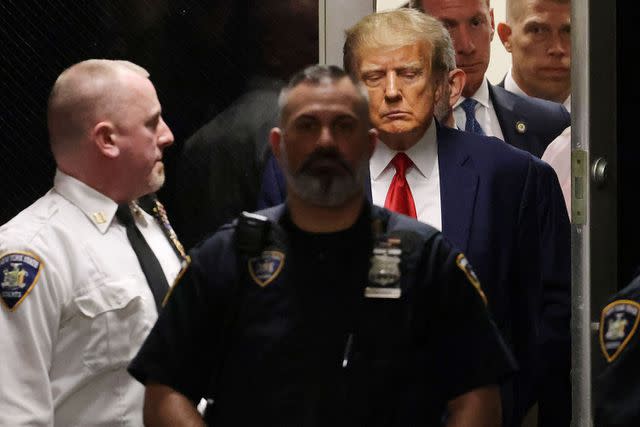
Trump Allegedly Mounted a 'Pressure Campaign' to Keep His Attorney From Telling Authorities About the Hush Money Payments
After the FBI executed a search warrant on Michael Cohen's home in April 2018, prosecutors say Trump and his allies engaged "in a public and private pressure campaign to ensure that [Cohen] did not cooperate with law enforcement in the federal investigation."
That pressure campaign, prosecutors say, included Trump calling Cohen to say "stay strong" the same day the FBI search was conducted, and a Tweet from Trump in which he encouraged Cohen not to "flip."
Weeks after the search, according to the indictment, Cohen was approached by another lawyer who offered to represent him as a means of maintaining a "back channel of communication" to Trump. In an email, that attorney told Cohen he was "loved," adding: "this communication channel must be maintained. ... Sleep well tonight, you have friends in high places."
Cohen has admitted guilt in the scheme. On Tuesday, Trump pleaded not guilty to the 34 counts.
For more People news, make sure to sign up for our newsletter!
Read the original article on People.


